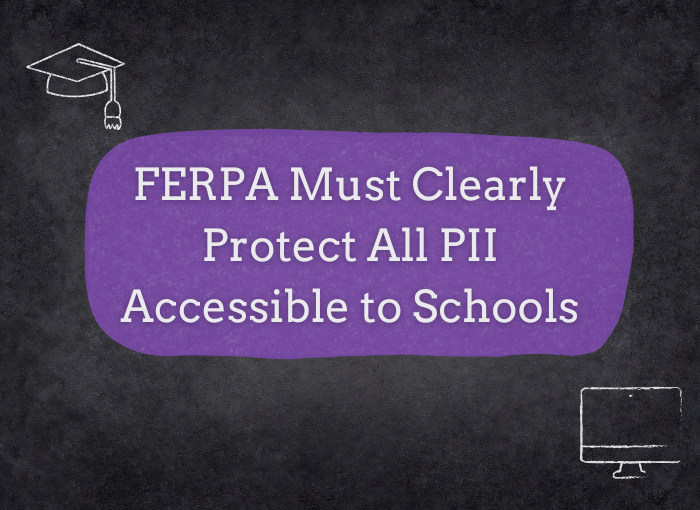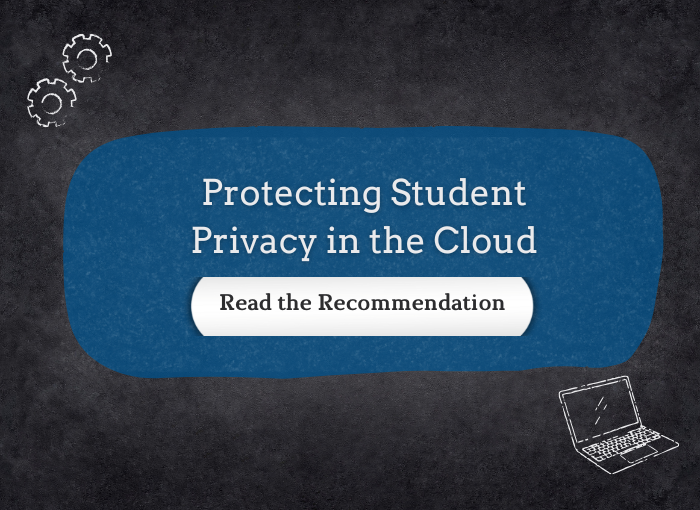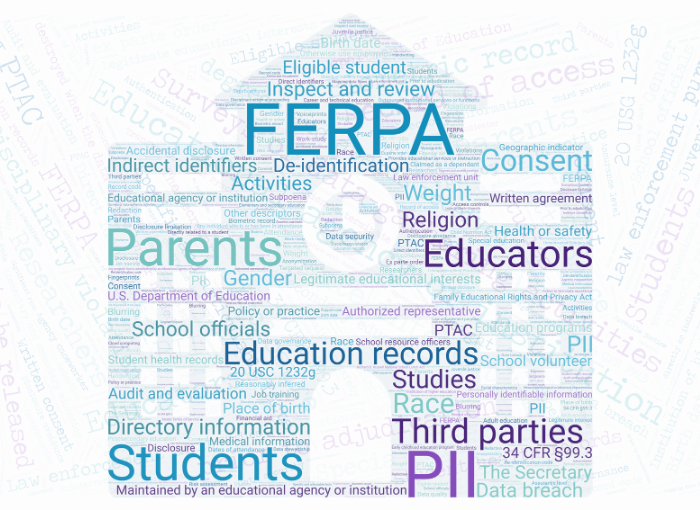Fixing FERPA: Clarifying Law Enforcement Access to Student Data
Fixing FERPA: Clarifying Law Enforcement Access to Student Data August 2025 Jessica Arciniega, Katherine Kalpos, Morgan Sexton, and Amelia Vance CC BY-NC 4.0 A middle school teacher, Ms. Walters, notices one of her students exhibiting increasingly concerning behaviors as he struggles to process his parents’ ongoing divorce. She knows that the school resource officer (SRO), Officer Luke, went through his own parents’ divorce in high school and has built strong, supportive relationships with students facing similar challenges. Ms. Walters wants to connect them, knowing this kind of mentorship and support often helps students navigate difficult family transitions. But she […]
Fixing FERPA: Clarifying Law Enforcement Access to Student Data Read More »










